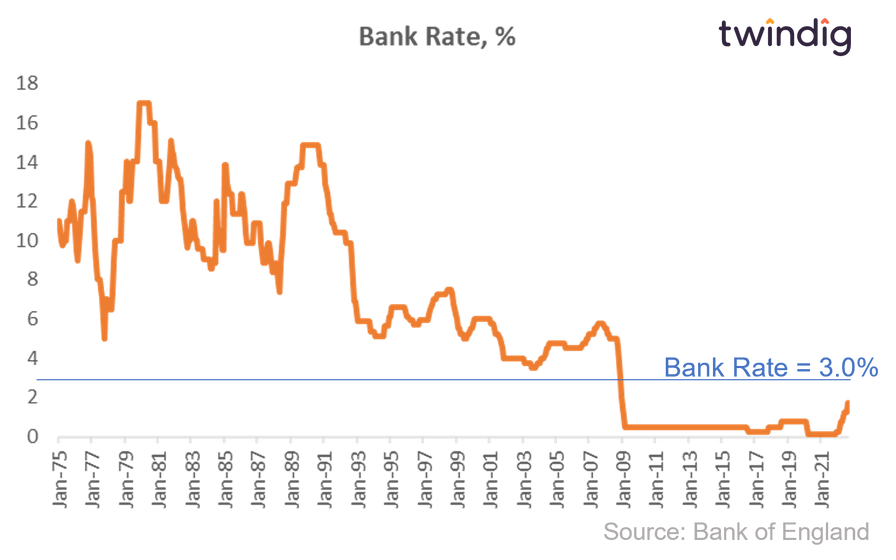Houselungo 7 August 2022

Nationwide say House prices rose for 12th month in a row
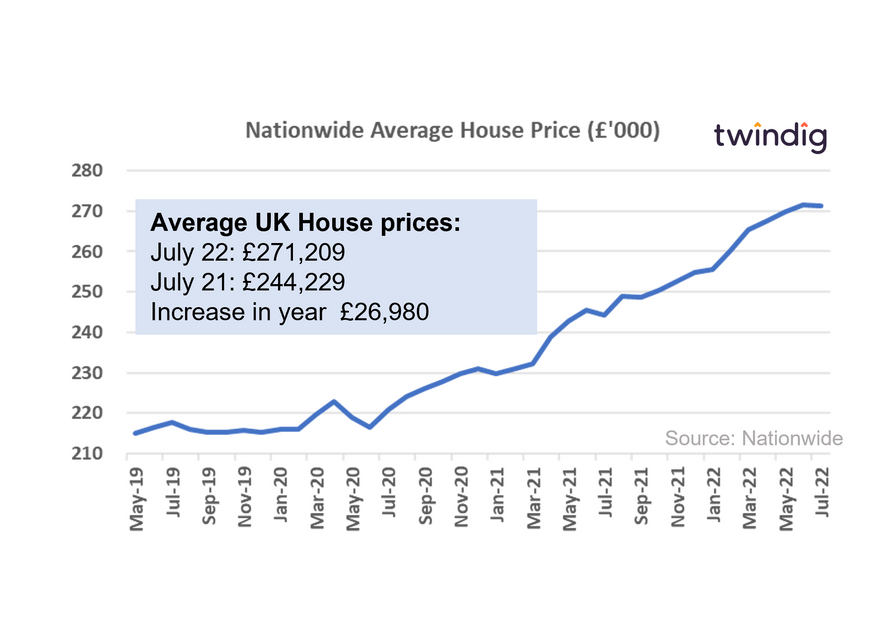
Nationwide released their house price index for July 2022 this week
What Nationwide said
Average UK house price £271,209
Annual house price inflation +11.0%
Increase last month slowed to +0.1%
Twindig take
It seems that house prices have not read the memo on the cost of living crisis as the latest data from Nationwide reveals they have now risen for 12 months in a row and we have seen double-digit house price growth for 9 months in a row.
Housing transactions are starting to slow, but house prices are still on the up as the pandemic boosted savings, low unemployment and a limited number of homes for sale continue to drive house price growth.
Nationwide continues to expect house prices to cool as higher inflation and interest rates start to pinch even the largest household budgets and deposit requirements stretch first-time buyers too far.
Halifax say house prices fell in July...
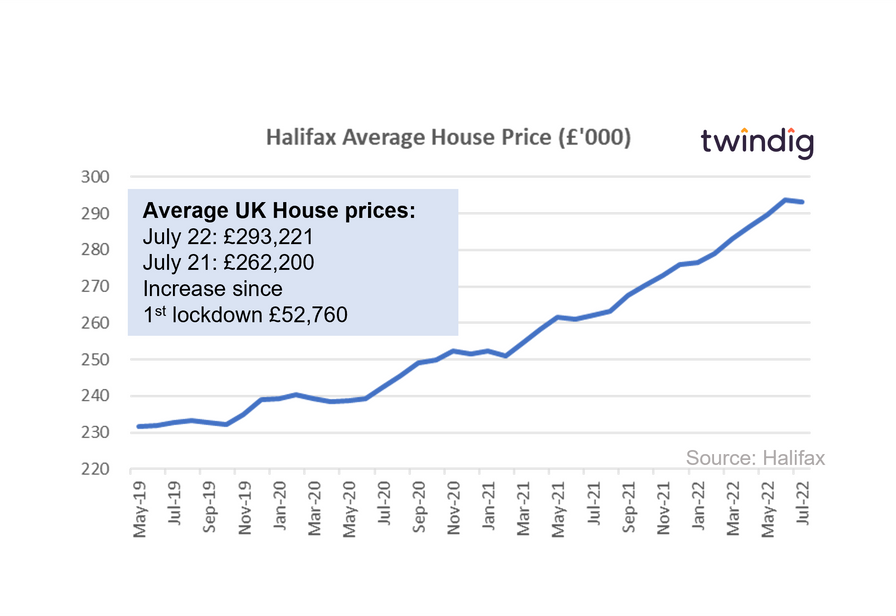
The Halifax released their July 2022 House Price Index on Friday
What the Halifax said
Average house price £293,221
House prices fell by 0.1% or £365 in July
Annual house price inflation 11.8%
Twindig Take
Nationwide say house prices are going up, but the Halifax say that house prices are going down, so what is really going on with house prices..?
Hot on the heels of Wednesday's Nationwide House Price Index which said house prices rise in July, on Friday, the Halifax reported that house prices fell in July 2022... So what is going on? Both use different samples (their own mortgage customers) and both moved by the tiniest of margins 0.1% or and £404 and £365 respectively. Twindig's view is it is probably fairest to say that house prices were flat (unchanged) in July...
However, what's clear is that after a very frenetic two years housing market activity is starting to soften and after winning the battle against COVID-19 it appears that in the double whammy of cost of living increases and mortgage rate rises, house prices have finally met their match.
Biggest Bank Rate rise since 1995
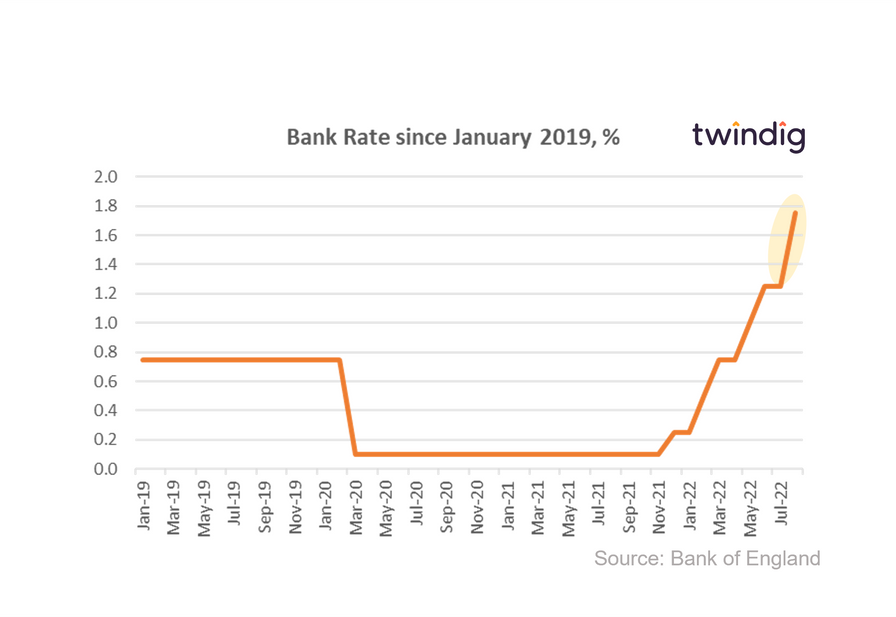
On Thursday, the Bank of England increased Bank Rate by 50 basis points to 1.75%
What the Bank of England said
Bank Rate increased from 1.25% to 1.75%
The MPC voted by a majority of 8-1 for a 50 basis point increase
Bank Rate could peak at around 3.0% in March 2023
Twindig take
As widely anticipated, the MPC decided to raise Bank Rate by 50 basis points from 1.25% to 1.75% today as the Bank of England gets tough on inflation and the causes of inflation, seeking to control inflation through the use of monetary policy.
A 50 basis point rise is the largest rise since 1995 and indicates that the Bank of England prefers short-term pain today rather than longer-term pain tomorrow. The Bank currently expects Bank Rate to peak at around 3% in March 2023.
We expect that this latest 50 basis point rise in Bank Rate will feed through to mortgage rates in September These rises are likely to increase floating mortgage rates and standard variable rates by half of one per cent (50 basis points). If your floating rate is 2.50% today it is likely to be 3.0%in September leading to an additional monthly mortgage payment of £25 per month for every £100,000 borrowed. However, those on fixed rates will not see changes to their mortgage payments until their fixed rate period ends.
Mortgage rising faster than Bank Rate
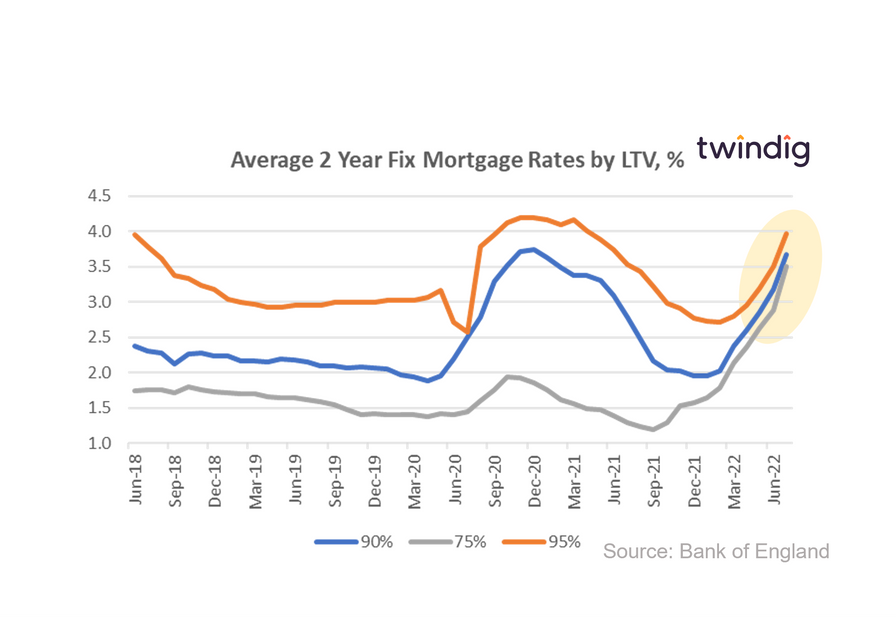
The Bank of England released average mortgage rates by Loan to Value (LTV) on Friday
What they said
Average mortgage rate for 75% LTV 2-year fixed rates mortgages 3.51%
Average mortgage rate for 90% LTV 2-year fixed rates mortgages 3.67%
Average mortgage rate for 95% LTV 2-year fixed rates mortgages 3.97%
Twindig take
July saw the biggest leap in mortgage rates for 2-year fixed rate 75% LTV mortgage we have seen increasing by 63 basis points (more than yesterday's Bank Rate rise) or 21.9% to 3.51%.
Since November 2021 Bank Rate has increased by 165 basis points, whereas the average rate for 2-year fixed rate 7%% LTV mortgages has increased by 198 basis points, more than doubling from 1.53% in November 2021 to 3.51% in July 2022.
To put that in context the monthly cost of borrowing £100,000 on a 25-year repayment mortgage has increased from £401 in November 2021 to £498 in July 2022 a rise of £97 per month (up 24%). It is no surprise therefore that some of the heat has been taken out of the housing market and that mortgage approvals have fallen for the last five months in a row.
Twindig Housing Market Index
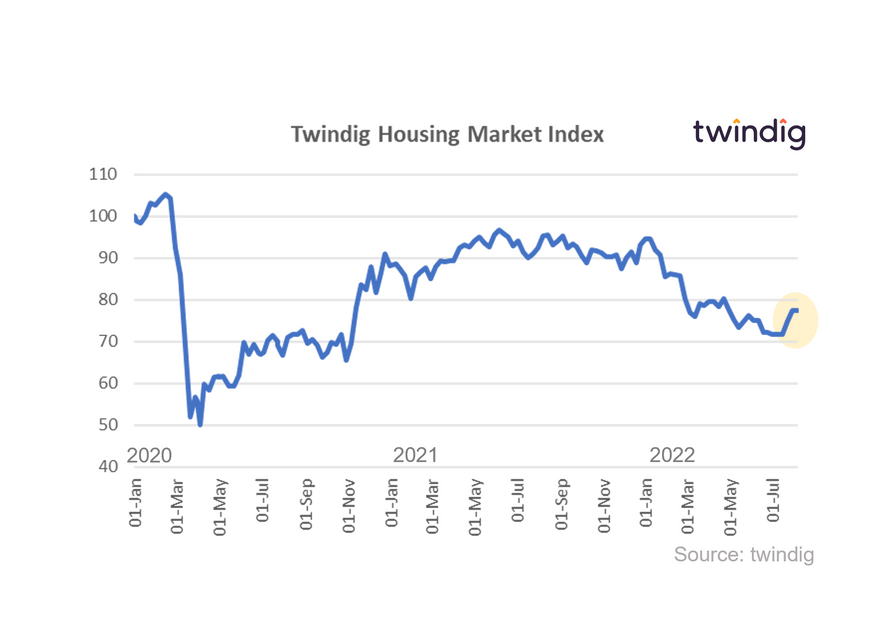
As well as calmly taking in the news about Bank Rate, residential property investors also seemed comfortable with the news that Bank Rate may peak at around 3% by March 2023. Whilst 3% would be off the scale on our chart above, in the context of history 3% is still relatively low as we illustrate in the graph below:
